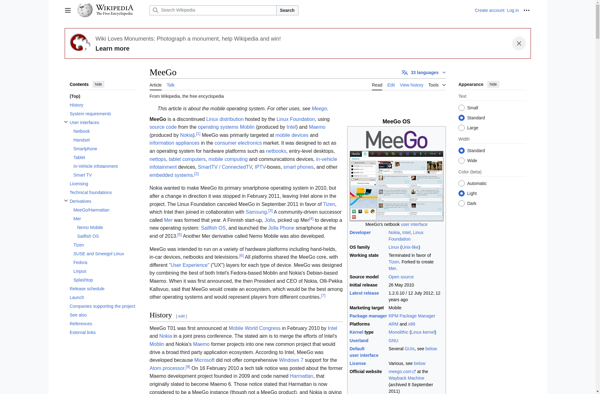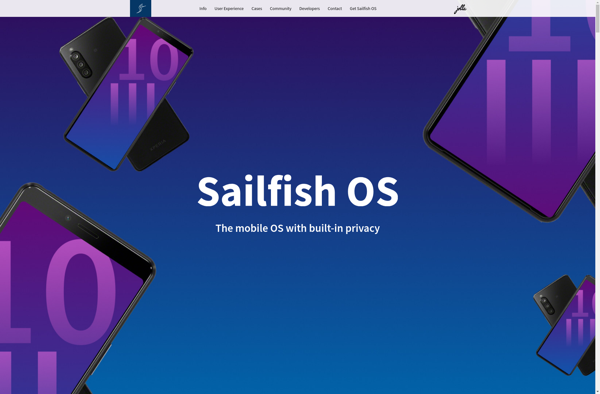MeeGo

MeeGo: Open Source Linux for Multi-Platform Support
A Linux-based operating system project merging Moblin & Maemo, targeting smartphones, netbooks, tablets & more hardware platforms.
What is MeeGo?
MeeGo was an open source Linux-based operating system project that aimed to support multiple hardware platforms, including mobile devices. It was launched in 2010 as a merger between Intel's Moblin platform (for mobile internet devices) and Nokia's Maemo platform (for smartphones and internet tablets).
The goal of MeeGo was to create a single OS that could run across a variety of devices, including mobile phones, netbooks, tablets, TVs, and in-vehicle infotainment systems. It used cutting-edge Linux technology and was optimized for modern device hardware capabilities. MeeGo aimed to be open, flexible, and easy for developers to work with.
MeeGo supported both ARM and Intel x86 processor architectures. It used Qt for the application framework and development environment. The MeeGo UI was designed to support multiple interacting windows, advanced visual effects, and intuitive touch-based navigation.
Although MeeGo garnered interest from companies besides Intel and Nokia, it struggled to gain momentum in the face of competition from Android and iOS. In 2011, Nokia decided to abandon MeeGo and use Windows Phone as its primary smartphone platform instead. This essentially marked the end of MeeGo, although some community-driven MeeGo derivatives lived on.
MeeGo Features
Features
- Linux-based OS optimized for mobile devices
- Supported ARM and Intel x86 processor architectures
- HTML5 web apps and native Qt/GTK+ apps
- Power management optimizations
- Touchscreen and gesture support
Pricing
- Open Source
Pros
Cons
Official Links
Reviews & Ratings
Login to ReviewThe Best MeeGo Alternatives
Top Os & Utilities and Mobile Operating Systems and other similar apps like MeeGo
Android

Sailfish OS

Tizen OS
